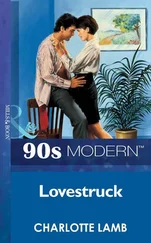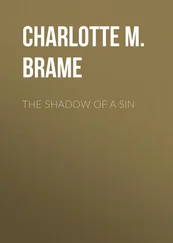Charlotte Brame - Love Works Wonders - A Novel
Здесь есть возможность читать онлайн «Charlotte Brame - Love Works Wonders - A Novel» — ознакомительный отрывок электронной книги совершенно бесплатно, а после прочтения отрывка купить полную версию. В некоторых случаях можно слушать аудио, скачать через торрент в формате fb2 и присутствует краткое содержание. ISBN: , Жанр: foreign_antique, foreign_prose, на английском языке. Описание произведения, (предисловие) а так же отзывы посетителей доступны на портале библиотеки ЛибКат.
- Название:Love Works Wonders: A Novel
- Автор:
- Жанр:
- Год:неизвестен
- ISBN:http://www.gutenberg.org/ebooks/33989
- Рейтинг книги:3 / 5. Голосов: 1
-
Избранное:Добавить в избранное
- Отзывы:
-
Ваша оценка:
- 60
- 1
- 2
- 3
- 4
- 5
Love Works Wonders: A Novel: краткое содержание, описание и аннотация
Предлагаем к чтению аннотацию, описание, краткое содержание или предисловие (зависит от того, что написал сам автор книги «Love Works Wonders: A Novel»). Если вы не нашли необходимую информацию о книге — напишите в комментариях, мы постараемся отыскать её.
Love Works Wonders: A Novel — читать онлайн ознакомительный отрывок
Ниже представлен текст книги, разбитый по страницам. Система сохранения места последней прочитанной страницы, позволяет с удобством читать онлайн бесплатно книгу «Love Works Wonders: A Novel», без необходимости каждый раз заново искать на чём Вы остановились. Поставьте закладку, и сможете в любой момент перейти на страницу, на которой закончили чтение.
Интервал:
Закладка:
"I have no doubt that I could," replied Sir Oswald.
"But, if you did," she persisted; "even suppose you could make it forget its own wild melodies, could you teach it to sing formally by note and at your will?"
"I have never supposed anything of the kind," said Sir Oswald. "You are possessed of far too much of that kind of nonsense. The young ladies of the present day – properly educated girls – do not talk in that way."
"I can easily believe it," she returned, bitterly.
"Miss Hastings is in the library," said Sir Oswald, as they entered the house. "I hope to see you receive her kindly. Put away that frown, Pauline, and smile if you can. Remember, it is characteristic of the Darrells to be gracious to strangers."
With these words Sir Oswald opened the library door, and holding his niece's hand, entered the room. Miss Hastings rose to receive them. He led Pauline to her, and in the kindest manner possible introduced them to each other.
"I will leave you together," he said. "Pauline will show you your rooms, Miss Hastings; and I hope that you will soon feel happy, and quite at home with us."
Sir Oswald quitted the library, leaving the two ladies looking in silence at each other.
CHAPTER III.
"YOUR GOOD SOCIETY IS ALL DECEIT."
Miss Hastings had been prepared to see a hoiden, an awkward, unfledged schoolgirl, one who, never having seen much of good society, had none of the little graces and charms that distinguish young ladies. She had expected to see a tall, gaunt girl, with red hands, and a general air of not knowing what to do with herself – that was the idea she had formed. She gazed in wonder at the reality – a magnificent figure – a girl whose grand, pale, statuesque beauty was something that could never be forgotten. There was nothing of the boarding-school young lady about her; no acquired graces. She was simply magnificent – no other word could describe her. Miss Hastings, as she looked at her, thought involuntarily of the graceful lines, the beautiful curves, the grand, free grace of the world-renowned Diana of the Louvre; there was the same arched, graceful neck, the same royal symmetry, the same harmony of outline.
In one of the most celebrated art galleries of Rome Miss Hastings remembered to have seen a superb bust of Juno; as she looked at her new pupil, she could almost fancy that its head had been modeled from hers. Pauline's head was royal in its queenly contour; the brow low, white, and rounded at the temples; the hair, waving in lines of inexpressible beauty, was loosely gathered together and fastened behind with a gleaming silver arrow. The eyes were perhaps the most wonderful feature in that wonderful face; they were dark as night itself, somewhat in hue like a purple heartsease, rich, soft, dreamy, yet at times all fire, all brightness, filled with passion more intense than any words, and shining then with a strange half-golden light. The brows were straight, dark, and beautiful; the lips crimson, full, and exquisitely shaped; the mouth looked like one that could persuade or contemn – that could express tenderness or scorn, love or pride, with the slightest play of the lips.
Every attitude the girl assumed was full of unconscious grace. She did not appear to be in the least conscious of her wonderful beauty. She had walked to the window, and stood leaning carelessly against the frame, one beautiful arm thrown above her head, as though she were weary, and would fain rest – an attitude that could not have been surpassed had she studied it for years.
"You are not at all what I expected to see," said Miss Hastings, at last. "You are, indeed, so different that I am taken by surprise."
"Am I better or worse than you had imagined me?" she asked, with careless scorn.
"You are different – better, perhaps, in some things. You are taller. You are so tall that it will be difficult to remember you are a pupil."
"The Darrells are a tall race," she said, quietly. "Miss Hastings, what have you come here to teach me?"
The elder lady rose from her seat and looked lovingly into the face of the girl; she placed her hand caressingly on the slender shoulders.
"I know what I should like to teach you, Miss Darrell, if you will let me. I should like to teach you your duty to Heaven, your fellow-creatures, and yourself."
"That would be dry learning, I fear," she returned. "What does my uncle wish me to learn?"
"To be in all respects a perfectly refined, graceful lady."
Her face flushed with a great crimson wave that rose to the white brow and the delicate shell-like ears.
"I shall never be that," she cried, passionately. "I may just as well give up all hopes of Darrell Court. I have seen some ladies since I have been here. I could not be like them. They seem to speak by rule; they all say the same kind of things, with the same smiles, in the same tone of voice; they follow each other like sheep; they seem frightened to advance an opinion of their own, or even give utterance to an original thought. They look upon me as something horrible, because I dare to say what I think, and have read every book I could find."
"It is not always best to put our thoughts in speech; and the chances are, Miss Darrell, that, if you have read every book you could find, you have read many that would have been better left alone. You are giving a very one-sided, prejudiced view after all."
She raised her beautiful head with a gesture of superb disdain.
"There is the same difference between them and myself as between a mechanical singing bird made to sing three tunes and a wild, sweet bird of the woods. I like my own self best."
"There is not the least doubt of that," observed Miss Hastings, with a smile; "but the question is not so much what we like ourselves as what others like in us. However, we will discuss that at another time, Miss Darrell."
"Has my uncle told you that if I please him – if I can be molded into the right form – I am to be heiress of Darrell Court?" she asked, quickly.
"Yes; and now that I have seen you I am persuaded that you can be anything you wish."
"Do you think, then, that I am clever?" she asked, eagerly.
"I should imagine so," replied Miss Hastings. "Pauline – I need not call you Miss Darrell – I hope we shall be friends; I trust we shall be happy together."
"It is not very likely," she said, slowly, "that I can like you, Miss Hastings."
"Why not?" asked the governess, astonished at her frankness.
"Because you are to correct me; continual correction will be a great annoyance, and will prevent my really liking you."
Miss Hastings looked astounded.
"That may be, Pauline," she said; "but do you know that it is not polite of you to say so? In good society one does not tell such unpleasant truths."
"That is just it," was the eager retort; "that is why I do not like good society, and shall never be fit for it. I am truthful by nature. In my father's house and among his friends there was never any need to conceal the truth; we always spoke it frankly. If we did not like each other, we said so. But here, it seems to me, the first lesson learned to fit one for society is to speak falsely."
"Not so, Pauline; but, when the truth is likely to hurt another's feelings, to wound susceptibility or pride, why speak it, unless it is called for?"
Pauline moved her white arms with a superb gesture of scorn.
"I would rather any day hear the truth and have my mind hurt," she said, energetically, "than feel that people were smiling at me and deceiving me. Lady Hampton visits Sir Oswald. I do not like her, and she does not like me; but she always asks Sir Oswald how his 'dear niece' is, and she calls me a 'sweet creature – original, but very sweet' You can see for yourself, Miss Hastings, that I am not that."
Читать дальшеИнтервал:
Закладка:
Похожие книги на «Love Works Wonders: A Novel»
Представляем Вашему вниманию похожие книги на «Love Works Wonders: A Novel» списком для выбора. Мы отобрали схожую по названию и смыслу литературу в надежде предоставить читателям больше вариантов отыскать новые, интересные, ещё непрочитанные произведения.
Обсуждение, отзывы о книге «Love Works Wonders: A Novel» и просто собственные мнения читателей. Оставьте ваши комментарии, напишите, что Вы думаете о произведении, его смысле или главных героях. Укажите что конкретно понравилось, а что нет, и почему Вы так считаете.












